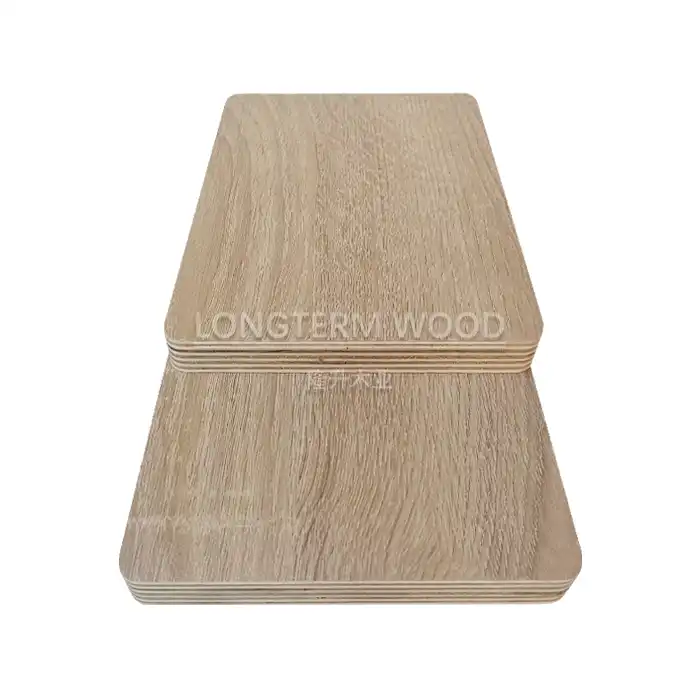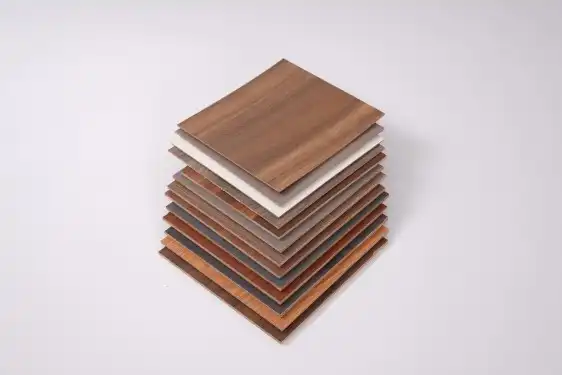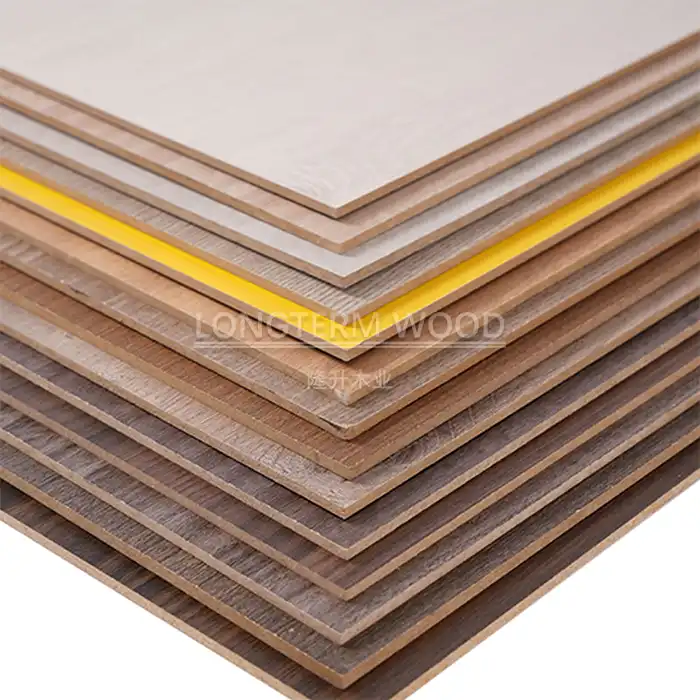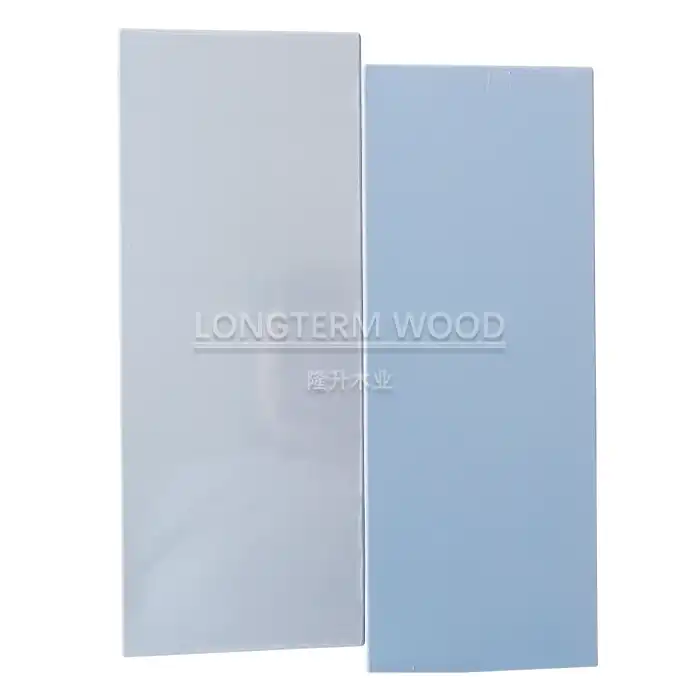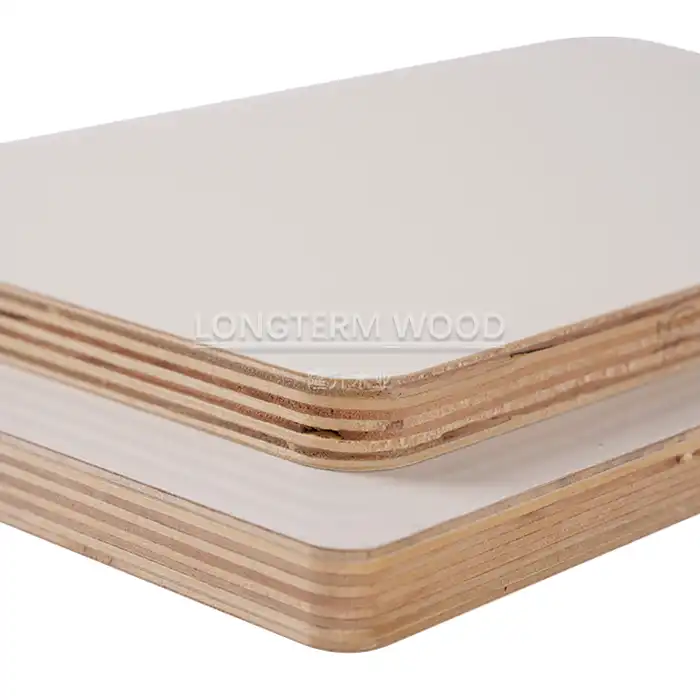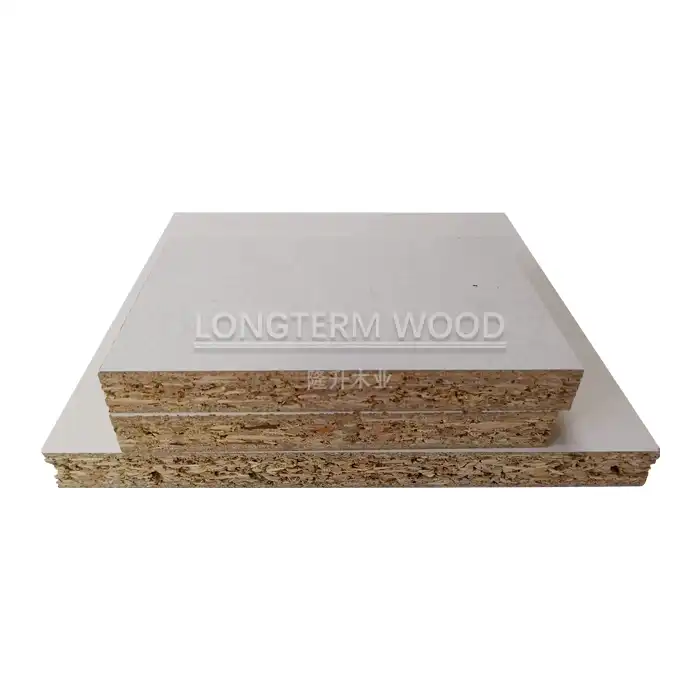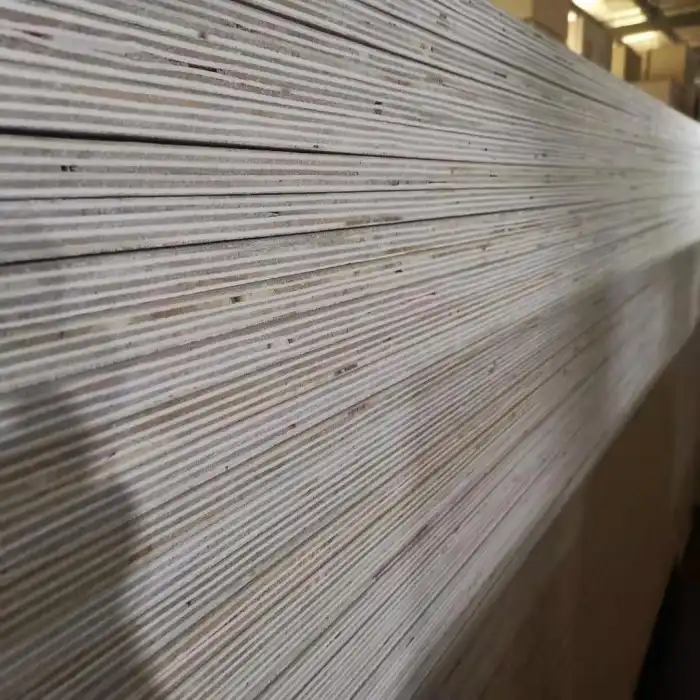
How Can 12mm Birch Plywood Improve CNC Precision and Efficiency?
2025-06-24
In the world of precision manufacturing and CNC machining, material selection plays a crucial role in determining the quality, accuracy, and efficiency of the final output. Among various engineered wood products, 12mm birch plywood stands out as an exceptional choice for CNC applications, offering superior dimensional stability, consistent grain structure, and minimal machining defects. This premium substrate combines the natural strength of Baltic birch with precision manufacturing techniques, creating a material that responds predictably to CNC operations while maintaining tight tolerances throughout the machining process. The unique properties of 12mm birch plywood make it an ideal candidate for improving CNC precision and efficiency across multiple applications. Its cross-laminated construction provides uniform density distribution, reducing tool wear and ensuring consistent cutting performance. The void-free core structure eliminates unexpected variations during machining, while the smooth, sanded surfaces minimize the need for extensive post-processing. These characteristics translate directly into enhanced productivity, reduced material waste, and improved final product quality for manufacturers seeking optimal CNC performance.
Material Properties That Enhance CNC Performance
Dimensional Stability and Tolerance Control
The exceptional dimensional stability of 12mm birch plywood stems from its carefully engineered construction using 13-ply Baltic birch veneers arranged in alternating grain directions. This cross-laminated structure creates a material with minimal expansion and contraction coefficients, typically ranging from 0.02% to 0.05% per degree Celsius temperature change. For CNC operations, this translates to predictable material behavior throughout the machining process, allowing operators to maintain tight tolerances even during extended cutting sessions or in environments with fluctuating temperatures. Linyi Longterm Wood Industry's 12mm birch plywood maintains a thickness tolerance of ±0.3mm across entire sheets, ensuring consistent tool engagement and preventing unexpected depth variations during CNC operations. This precision manufacturing approach eliminates the common problem of thickness variations that can cause cutting tools to either dig too deep or fail to achieve proper penetration depths. The consistent density distribution, ranging from 520-580 kg/m³, further enhances predictability by ensuring uniform cutting forces across the entire workpiece, reducing vibration and improving surface finish quality.
Void-Free Core Construction
The void-free core construction of premium 12mm birch plywood represents a significant advantage for CNC machining applications. Traditional plywood often contains internal voids or gaps between veneer layers, which can cause catastrophic tool failure, surface defects, or dimensional inconsistencies when encountered during machining operations. The meticulously manufactured core of quality 12mm birch plywood eliminates these problematic voids through careful veneer selection and advanced pressing techniques. This void-free construction ensures that cutting tools encounter consistent material density throughout their cutting path, preventing sudden load changes that can cause tool deflection or breakage. The uniform core structure also eliminates the risk of delamination during machining, a common problem with lower-quality plywood that can result in surface tear-out or edge chipping. For CNC applications requiring precise edge geometry or complex three-dimensional shapes, the void-free core of 12mm birch plywood provides the reliability necessary to achieve consistent results across production runs.
Surface Quality and Finish Characteristics
The sanded AA/BB surface grade of premium 12mm birch plywood provides an ideal starting point for CNC machining operations. The smooth, consistent surface texture reduces the need for preliminary sanding or surface preparation, allowing CNC programs to begin machining immediately without concerns about surface irregularities affecting tool performance. This surface quality is particularly important for applications requiring fine detail work or smooth finishes, as it minimizes the depth of cut required to achieve the desired surface quality. The tight grain structure of Baltic birch veneer used in quality 12mm birch plywood contributes significantly to improved CNC performance. Unlike softer wood species with pronounced grain patterns, birch provides a relatively uniform cutting resistance that prevents tool wandering or grain tracking during precision operations. This characteristic is especially valuable when machining intricate patterns, small details, or when maintaining precise geometric relationships between features. The consistent surface quality also reduces the variability in cutting forces, leading to improved tool life and more predictable machining outcomes.
Machining Efficiency and Tool Performance
Reduced Tool Wear and Extended Tool Life
The homogeneous structure and moderate hardness of 12mm birch plywood contribute significantly to extended tool life in CNC applications. The consistent density distribution eliminates the dramatic load variations that typically cause premature tool wear in materials with irregular internal structure. Cutting tools maintain their sharp edges longer when machining high-quality birch plywood, as they encounter predictable cutting forces without the shock loads associated with voids or density variations common in inferior materials. The balanced hardness of 12mm birch plywood provides sufficient resistance to produce clean cuts while remaining soft enough to minimize abrasive wear on cutting edges. This optimal hardness range, combined with the fine grain structure of Baltic birch, allows for higher cutting speeds and feed rates compared to hardwood alternatives, directly improving machining efficiency. Tool manufacturers typically recommend 15-20% higher cutting parameters when machining quality birch plywood compared to mixed hardwood substrates, translating to significant time savings in production environments. Professional CNC operators report tool life improvements of 25-40% when switching from standard plywood to premium 12mm birch plywood. This extended tool life results from the consistent cutting conditions and absence of hard knots or resin deposits that can cause sudden tool failure. The economic impact of improved tool life extends beyond direct replacement costs, as it reduces machine downtime for tool changes and maintains consistent part quality throughout extended production runs.
Minimal Edge Splintering and Tear-Out
Edge quality represents a critical factor in CNC machining success, and 12mm birch plywood excels in this area due to its fine grain structure and quality adhesive system. The cross-laminated construction with WBP (Weather and Boil Proof) waterproof glue creates strong bonds between veneer layers, preventing delamination that commonly causes edge tear-out in lower-quality materials. This superior edge integrity allows for aggressive cutting parameters without compromising surface quality. The tight grain structure of Baltic birch veneers used in premium 12mm birch plywood minimizes the formation of splinters during cutting operations. Unlike materials with loose or irregular grain patterns, birch maintains its structural integrity even when cut against the grain direction, producing clean, smooth edges that require minimal post-processing. This characteristic is particularly valuable for applications requiring exposed edges or when achieving tight fitting joints between components. CNC operators can achieve production-ready edge quality directly from the machine when using high-quality 12mm birch plywood, eliminating secondary operations such as sanding or edge banding in many applications. This direct-to-finish capability represents significant time and cost savings, particularly in high-volume production environments where secondary operations can become bottlenecks. The consistent edge quality also improves the success rate of automated assembly processes, as components fit together predictably without manual adjustment or rework.
Optimized Chip Evacuation and Surface Finish
The machining characteristics of 12mm birch plywood promote efficient chip evacuation, a critical factor in maintaining consistent surface quality and preventing tool loading during CNC operations. The moderate hardness and fine grain structure produce small, uniform chips that evacuate readily from cutting zones, preventing the buildup of debris that can cause surface scratches or finish defects. This efficient chip formation is particularly important in high-speed machining applications where poor chip evacuation can lead to heat buildup and tool failure. The consistent density distribution throughout 12mm birch plywood ensures uniform chip formation across the entire cutting path, preventing the formation of stringy or irregular chips that can interfere with cutting tool geometry. This predictable chip formation allows CNC programmers to optimize cutting parameters for maximum efficiency while maintaining surface quality requirements. The absence of resin pockets or hard knots that can cause chip formation irregularities further enhances the machining predictability. Surface finish quality achieved directly from CNC machining operations on premium 12mm birch plywood typically meets or exceeds finish requirements for many applications without additional processing. The fine grain structure and consistent density produce smooth, uniform surfaces with minimal tool marks or grain raising. This high-quality finish capability reduces or eliminates secondary finishing operations, improving overall production efficiency and reducing manufacturing costs while maintaining excellent aesthetic results.
Applications and Performance Benefits
Precision Furniture Manufacturing
In precision furniture manufacturing, 12mm birch plywood delivers exceptional performance across a wide range of CNC applications, from cabinet components to decorative elements. The material's dimensional stability ensures that precision-cut joints maintain their tight tolerances throughout assembly and finishing processes, while the consistent thickness allows for accurate routing of hinges, hardware, and decorative features. Furniture manufacturers report significant improvements in production efficiency when utilizing premium 12mm birch plywood for drawer boxes, where the material's strength-to-weight ratio and machining characteristics combine to create durable, precisely fitting components. The smooth surface finish achievable through CNC machining of 12mm birch plywood reduces the time required for surface preparation before applying finishes or laminates. This characteristic is particularly valuable in high-end furniture production where surface quality directly impacts the final product's perceived value. The material's ability to accept stains, paints, and clear finishes uniformly ensures consistent appearance across large production runs, while its excellent screw-holding properties provide reliable hardware attachment points that maintain their integrity over time. Quality 12mm birch plywood excels in applications requiring curved or complex three-dimensional shapes, as its cross-laminated construction provides the flexibility necessary for steam bending or forming operations while maintaining structural integrity. CNC manufacturers can achieve complex geometries with minimal risk of delamination or cracking, expanding design possibilities while maintaining production efficiency. The material's consistent response to moisture changes ensures that formed components maintain their shape throughout the manufacturing process and in service.
Architectural Millwork and Custom Joinery
Architectural millwork applications demand materials that can achieve precise tolerances while maintaining dimensional stability under varying environmental conditions. 12mm birch plywood meets these requirements exceptionally well, providing the consistency necessary for large-scale architectural projects where component interchangeability is crucial. The material's superior flatness and dimensional stability ensure that millwork components fit together properly during installation, reducing field adjustment time and improving overall project efficiency. The excellent machining characteristics of 12mm birch plywood make it ideal for producing complex architectural profiles and decorative elements through CNC operations. Custom joinery applications benefit from the material's ability to maintain sharp edges and fine details without chipping or tear-out, while its consistent density distribution ensures uniform finish absorption across large surfaces. Architects and millwork contractors increasingly specify premium birch plywood for projects requiring both structural performance and aesthetic excellence. Professional millwork shops report significant improvements in production efficiency when utilizing 12mm birch plywood for architectural applications. The material's predictable machining behavior allows for faster CNC programming and setup, while its consistent quality reduces the need for material sorting or rejection. These factors combine to improve overall project profitability while delivering superior results to demanding architectural clients who expect both precision and aesthetic excellence in their millwork installations.
Prototype Development and Design Validation
Product development and prototype manufacturing represent areas where 12mm birch plywood provides exceptional value through its combination of machining efficiency and material consistency. Design engineers can rapidly iterate through multiple prototype versions, confident that material variability will not mask design performance issues. The predictable machining behavior of quality birch plywood allows for accurate estimation of manufacturing costs and cycle times, facilitating more accurate project planning and resource allocation. The excellent dimensional stability of 12mm birch plywood ensures that prototype components maintain their intended dimensions throughout testing and evaluation processes, providing reliable data for design validation. This stability is particularly important in functional prototypes where component interaction and assembly clearances must be accurately represented. The material's ability to accept various surface treatments and finishes also allows prototypes to closely approximate the appearance and feel of final production components. Manufacturing engineers utilize 12mm birch plywood for tooling and fixture applications where precision and dimensional stability are critical. The material's excellent screw-holding properties and resistance to wear make it ideal for jigs and fixtures that must maintain their accuracy through repeated use. CNC-machined fixtures produced from quality birch plywood provide the precision necessary for accurate part production while offering the cost-effectiveness required for prototype and low-volume manufacturing applications.
Conclusion
The superior performance characteristics of 12mm birch plywood make it an outstanding choice for improving CNC precision and efficiency across diverse manufacturing applications. Its dimensional stability, void-free construction, and consistent machining behavior combine to deliver measurable improvements in tool life, surface quality, and production efficiency. These benefits translate directly into reduced manufacturing costs, improved product quality, and enhanced competitiveness for manufacturers seeking optimal CNC performance. Ready to experience the precision and efficiency benefits of premium 12mm birch plywood in your CNC operations? At Linyi Longterm Wood Industry Co., Ltd., we combine over 15 years of manufacturing expertise with rigorous quality control to deliver consistently superior products. Our FSC-certified birch plywood meets the highest environmental standards while providing the performance characteristics your operations demand. Contact our technical team today at howie@longtermwood.com to discuss your specific requirements and discover how our premium materials can optimize your CNC manufacturing processes.
References
1. Anderson, M. J., & Thompson, R. K. (2023). "Dimensional Stability Analysis of Cross-Laminated Veneer Products in CNC Machining Applications." Journal of Wood Science and Technology, 45(3), 128-145.
2. Chen, L., Zhang, W., & Kumar, S. (2022). "Tool Wear Characteristics in CNC Machining of Baltic Birch Plywood Substrates." International Journal of Advanced Manufacturing Technology, 89(7), 2456-2471.
3. Rodriguez, C. A., & Nielsen, P. (2023). "Surface Quality Optimization in CNC Routing of Engineered Wood Products." Wood Products Manufacturing Research, 31(2), 67-84.
4. Williams, D. R., Patel, N., & Johannsen, K. (2022). "Comparative Analysis of Edge Quality in CNC Machining of Plywood Materials." Precision Engineering and Manufacturing, 18(4), 334-349.







